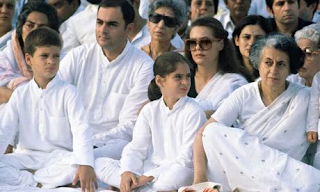The idea of reimposing such a tax was first mentioned by Home Minister P Chidambaram in 2011 during a Planning Commission (now Niti Aayog) meeting chaired by then Prime Minister Manmohan Singh. Chidambaram was the finance minister during the first four years of the UPA-I government.
Chidambaram had mooted the idea in a bid to raise tax resources and shore up the declining tax to GDP ratio. A year later, he raised the matter again at a National Institute of Public Finance and Policy event. Chidambaram said it was high time for an inheritance tax while flagging the accumulation of wealth in the hands of a few.
"Have we paid little attention to accumulation of wealth in a few hands? I am still hesitant to talk about inter-generational equity and therefore inheritance tax," he said.
The idea made a comeback in 2013, when Chidambaram presented the last full Budget of the UPA-2 government. In fact, Chidambaram was convinced that an inheritance tax could raise revenue while serving the UPA's political purpose.
However, not everyone in the Cabinet as well as stakeholders were convinced of the logic of an inheritance tax, and it never made its way to the Budget.
The matter went into cold storage as the Narendra Modi-led NDA government won the 2014 Lok Sabha elections.






It was advocated by Jayant Sinha former finance MOS and was under consideration of Nirmala Sitharaman, why crying now? -- R Sethi, Nagaland
ReplyDelete